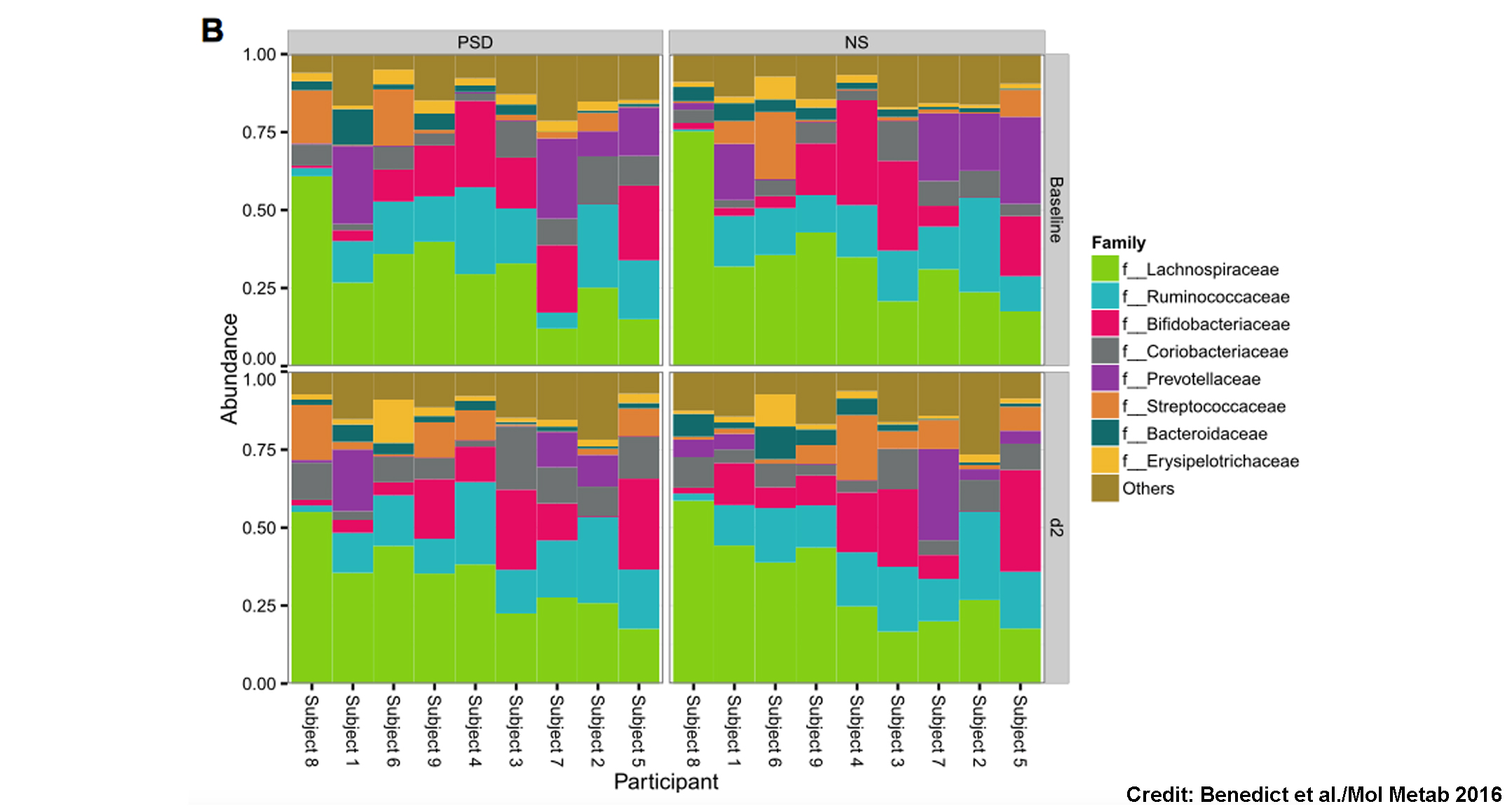In both mice and humans the gut microbiota exhibits a circadian rhythm and it may be perturbed following circadian misalignment. Previous research has found that the circadian clock of the host may elicit responses from the circadian clocks of commensal gut bacteria. Although changes to the gut microbiota have been linked to the metabolic disturbances that occur after sleep deprivation in mice, whether insufficient sleep has an impact on the composition of the human gut microbiota remains unknown.
A recent study, led by Dr. Jonathan Cedernaes from the Department of Neuroscience at Uppsala University (Sweden), has found that short-term sleep loss may induce subtle changes in the human gut microbiota.
The researchers studied 9 normal-weight men (mean age 23.3 years) in a randomized within-subject crossover study with fixed meal times and exercise schedules: they examined the subjects after 2 nights of partial sleep deprivation (sleep opportunity 02:45-07:00h) and after 2 nights of normal sleep (sleep opportunity 22:30-07:00h). Faecal samples for microbiota composition and short-chain fatty acid content analysis were collected within 24 hours before (baseline), and after the 2 in-lab nights, of either partial sleep deprivation or normal sleep. Furthermore, participants underwent an oral glucose tolerance test following each sleep intervention.
Overall the researchers did not find evidence that suggested the diversity of the gut microbiota was altered by the sleep restriction, which may be expected due to the short-term nature of the intervention and the small sample size. However, after 2 days of partial sleep deprivation, individuals exhibited an increased Firmicutes:Bacteroidetes ratio and an increase in bacteria from the families Coriobacteriaceae and Erysipelotrichaceae, with decreases in Tenericutes, when compared to normal sleep. Changes in these families of bacterial gut species were previously associated with metabolic perturbations in some studies both in mice and humans. However, faecal short-chain fatty acid levels did not change depending on sleep duration. Fasting and postprandial insulin sensitivity decreased after partial sleep deprivation but were unrelated to alterations in the gut microbiota. This suggests that changes in gut microbiota may not represent a central mechanism by which short-term sleep deprivation reduces insulin sensitivity in humans.
On the whole, these are the first results that show how short sleep duration impacts the human gut microbiota. Further research is needed in order to elucidate the extent to which changes to the gut microbial communities contribute to the known metabolic consequences of sleep loss.
Reference:
Benedict C, Vogel H, Jonas W, et al. Gut microbiota and glucometabolic alterations in response to recurrent partial sleep deprivation in normal-weight young individuals. Mol Metab. 2016. http://dx.doi.org/10.1016/j.molmet.2016.10.003.


